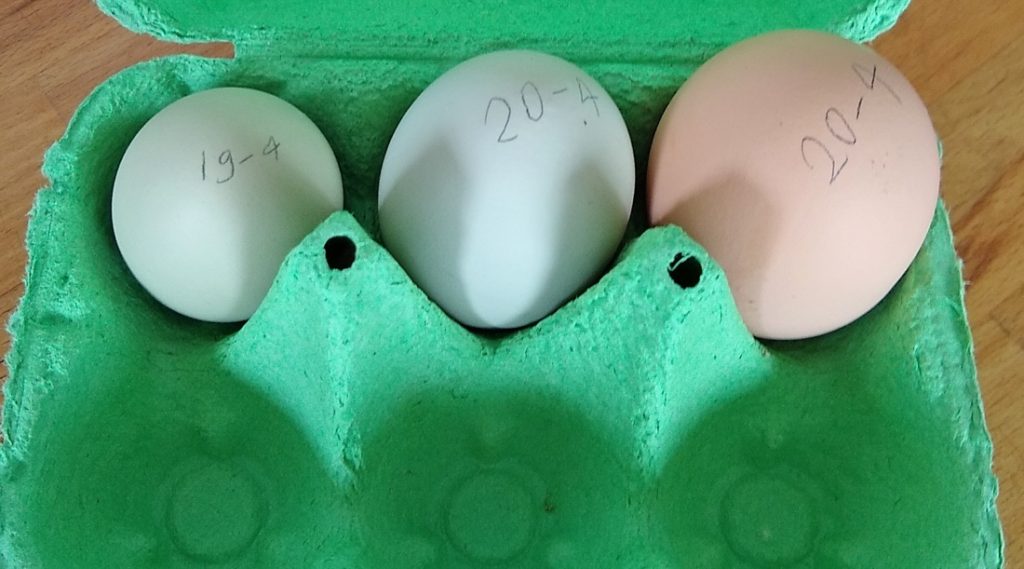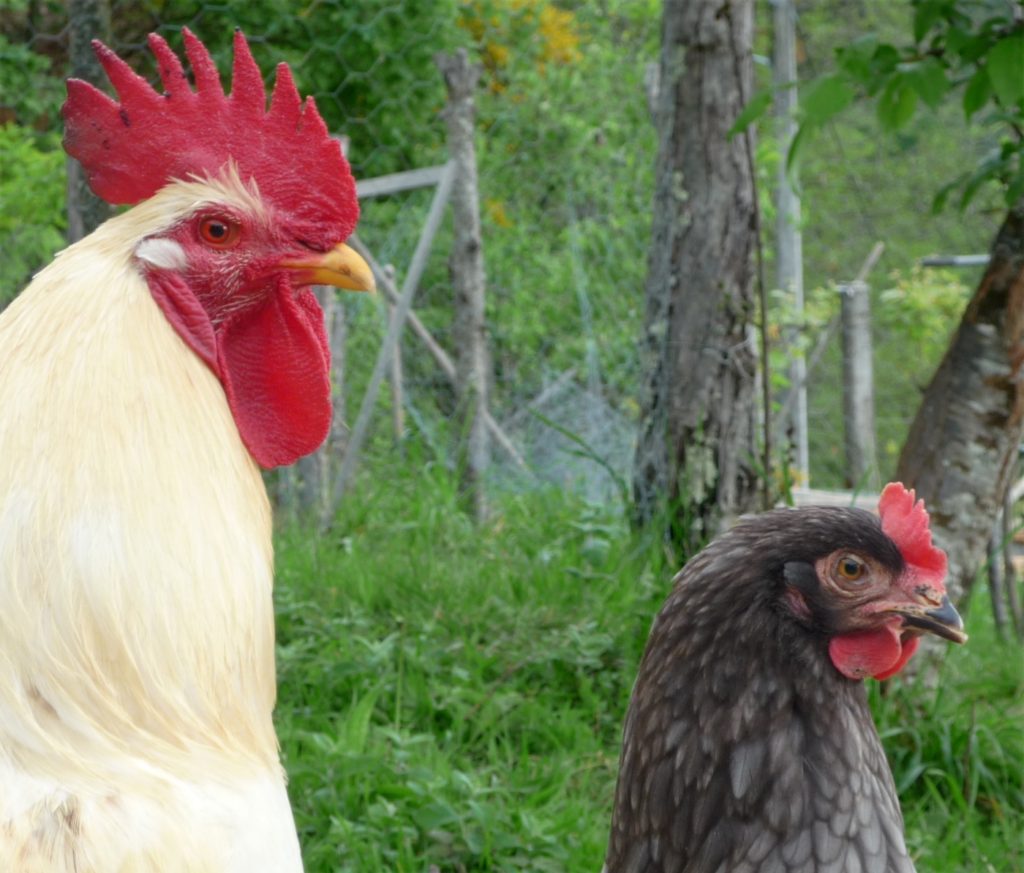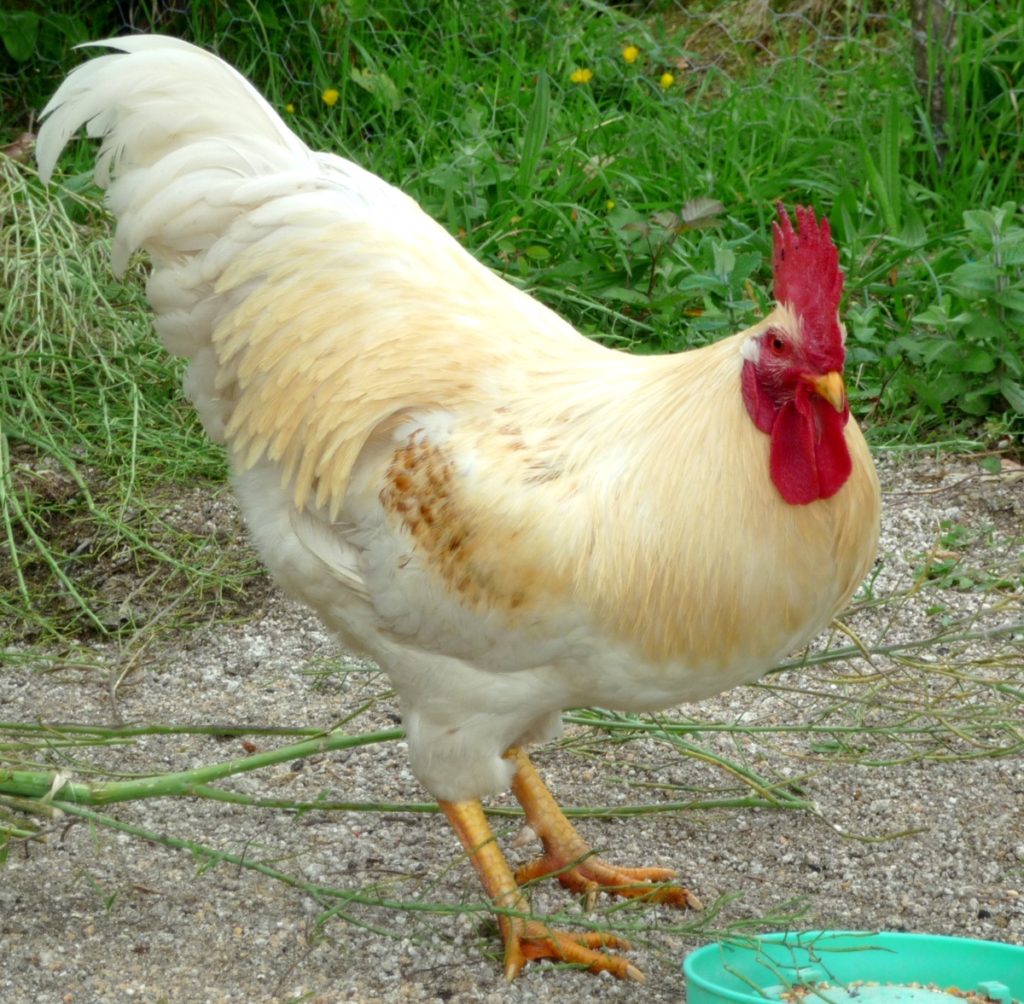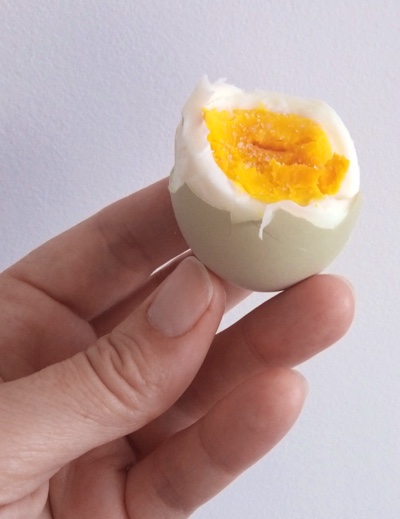It’s Easter Sunday, we hear that typical “buk, buk, ba-gawk” from the top terrace: Yep, we have the first egg from our new chickens! From then on we find an egg every other day. Not all perfect: sometimes with a weak shell or different in size (two yolks in it). The chickens are still young, so they need some time to learn how to lay. In addition to this tasteful pleasure, the chickens, like all pets, also bring us trouble…

The first two weeks, Willem, the cockerel, and the girls looked healthier and stronger every day. Except for some black spots on the comb of Willem. At first, we thought; that must be scarves or dried wounds, from fighting with his brothers. We also thought of sunburn marks, since the chickens never lived outdoors before.
But then we noticed a little wart on Linda’s comb as well. Mmmmm…
We searched ‘warts’, ‘black spots’ and ‘on combs of chickens’ on the internet, and we discovered it must be avipox.
We never heard about this disease, even though it’s very common for backyard poultry. The disease has two forms: One, a dry form: with warts and spots on combs, wattles, beak, ears and eyes. This form is also known as fowlpox.
And two, a wet form, with yellow blemishes in the mouth, throat and lungs, it causes diarrhea too.
Luckily the first one can simply be treated by disinfecting the spots with iodine. The second one is more dangerous and more difficult to treat.

We are still treating our chickens every night. When it’s dark, we take them out of the coop, one by one. We treat the warts and spots with a cotton swab dipped in iodine. Last week, poor Linda got a wart on her eye. That looked bad, but after disinfecting it three times, she was able to open her eye again. Generally, after a few treatments, the warts dry out and fall off.
Fowlpox should be over in 3-4 weeks. And once the chickens have had it, they can’t have it again. We look forward to that. Although, I don’t think it’s the last problem we’re going to have with pets. In the meantime, we enjoy our free-range organic eggs.


